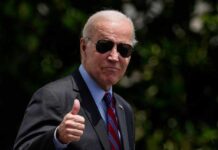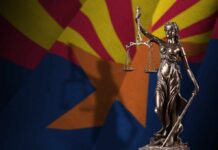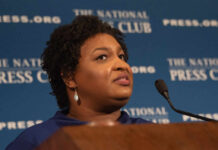
A long-time journalist for National Public Radio (NPR) quit his job this week, following several days of a suspension that resulted from an essay he wrote, which exposed left-wing bias at the outlet.
Uri Berliner said that the previously balanced organization had swayed significantly to the left following the 2016 election of Donald Trump as well as the race riots of 2020. The essay, titled “I’ve Been at NPR for 25 Years. Here’s How We Lost America’s Trust,” explains the journalist’s perspective on how the outlet caved to liberal agendas including unconscious bias training and focusing on race and gender within the newsroom.
JUST IN: NPR editor and whistleblower Uri Berliner has resigned from NPR, blasts their new CEO Katherine Maher on his way out.
Berliner was serving a five-day suspension after calling out the extreme liberal bias at NPR.
"I am resigning from NPR, a great American institution… pic.twitter.com/yRAwsCM7XM
— Collin Rugg (@CollinRugg) April 17, 2024
Berliner wrote in his resignation letter, addressed to the outlet’s CEO Katherine Maher, that he is not able to “work in a newsroom where I am disparaged by a new CEO whose divisive views confirm the very problems at NPR I cite in my Free Press essay.” The journalist added that he is not in favor of defunding the outlet and wishes it well in returning to its previous high standards of journalism.
He also described NPR as “a great American institution,” despite his criticism of its political shortcomings in recent years. In response to the essay, chief news executive Edith Chapin wrote to staff that the company is “proud” of the “exceptional work” conducted through its newsroom and emphasized the importance of “inclusion” in the role of journalistic storytelling.
Chapin also said that NPR is not “above scrutiny or critique” and encouraged what she described as “vigorous discussions” about content, despite her overall condemnation of Berliner’s accusations.
In his essay, the veteran journalist wrote that NPR “no longer” contains “an open-minded spirit” and it does not “have an audience that reflects America.” He also stated that there is a structured emphasis on diversity and inclusion, especially in the hot button areas of race, ethnicity and gender identity. Berliner added that these ideologies were promoted by John Lansing, the former CEO of the company.
Additionally, the essay detailed how NPR did not cover the controversial Hunter Biden laptop story and promoted questionable statements from the government related to COVID-19 and a failure to journalistically investigate the origins of the virus. Maer responded to Berliner’s critique by emphasizing the need to ask questions in the field of journalism while taking offense to the journalist’s perceived attack on the personal views of NPR employees.




























